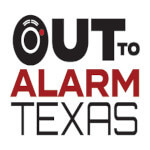Protecting Your Home from the Silent Threat: Carbon Monoxide Safety


October 17, 2023
Carbon monoxide (CO) is often called the "invisible killer" for a good reason. This colorless, odorless, and tasteless gas is produced when fuels like gasoline, wood, coal, natural gas, propane, oil, and methane burn incompletely. Unfortunately, CO can become a silent threat in our homes, especially when heating and cooking equipment that burn fuel are involved. Here are essential steps to ensure your safety:
Choose a Certified CO Alarm: When it comes to CO alarms, always select one listed by a qualified testing laboratory. Certification ensures that the alarm meets rigorous safety standards.
Know Who to Call: Familiarize yourself with your local fire department's non-emergency number to find out who to contact if your CO alarm sounds. Quick response is critical in a CO emergency.
Regular Testing: Test your CO alarms at least monthly to ensure they work correctly. Follow the manufacturer's instructions for replacement, as CO alarms have a limited lifespan.
Address Low Battery Warnings: If your CO alarm emits a low battery signal, replace the battery immediately. If the alarm continues to sound, contact the fire department for assistance.
Respond to Alarms: If your CO alarm sounds, move to a fresh air location outdoors, near an open window or door. Account for everyone in the home and call for help from a safe location. Do not re-enter the house until emergency personnel declare it safe.
Vehicle Safety: Never run a vehicle or any fueled engine indoors, even if garage doors are open. Remove the vehicle from the garage immediately after starting it, and ensure the exhaust pipe is not obstructed by snow.
Snowstorm Awareness: After a snowstorm, clear snow build-up from vents for the dryer, furnace, stove, and fireplace to prevent CO buildup.
Generator Safety: When using a generator, place it in a well-ventilated outdoor location away from windows, doors, and vent openings.
Grilling Precautions: Gas or charcoal grills can produce CO. Always use grills outdoors to prevent CO buildup in your home.
By following these crucial steps and remaining vigilant, you can protect your home and loved ones from the hidden danger of carbon monoxide. CO safety is a responsibility we all share to ensure a secure living environment.
